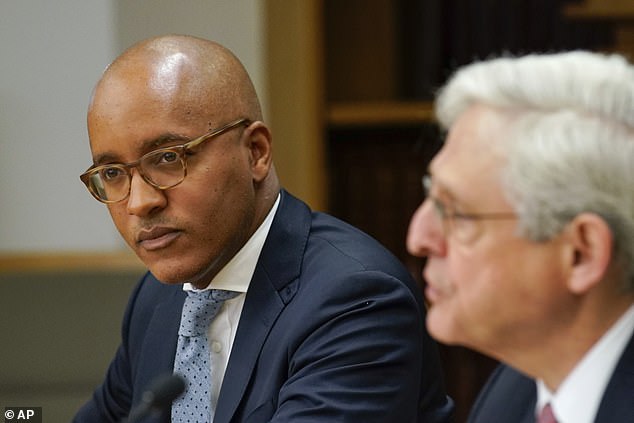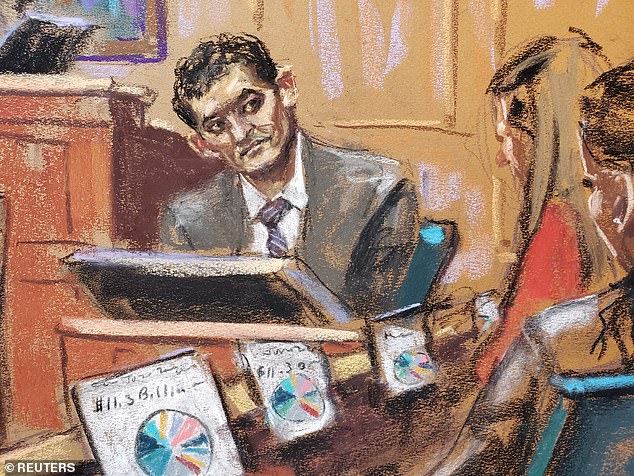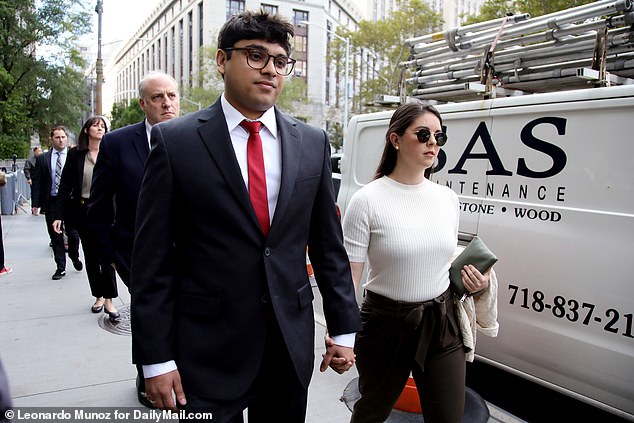Sam Bankman-Fried will not face second trial on charges including making illegal campaign donations and bribing Chinese officials
Sam Bankman-Fried, who was convicted last month of stealing from customers of his now-bankrupt FTX cryptocurrency exchange, will not face a second trial in the case on separate charges including campaign finance violations.
In a letter filed Friday evening in federal court in Manhattan, prosecutors said the “strong public interest” in a speedy resolution of their case against the 31-year-old former billionaire outweighed the benefits of a second trial.
Prosecutors said the interest here is “particularly weighty” as Bankman-Fried's scheduled sentencing on March 28 will likely include forfeiture and restitution orders for the victims of his crimes.
In their letter to U.S. District Judge Lewis Kaplan, prosecutors noted that they submitted evidence on all dropped charges during Bankman-Fried's first trial that the judge can consider at sentencing.
Last month, jurors convicted Bankman-Fried of all seven counts of fraud and conspiracy he faced. Prosecutors had accused him of looting $8 billion from FTX customers out of sheer greed.
Sam Bankman-Fried, who was convicted last month of stealing from customers of his now-bankrupt cryptocurrency exchange FTX, will not face a second trial

U.S. Attorney Damian Williams said the “strong public interest” in a speedy resolution of the case against the 31-year-old former billionaire outweighed the benefits of a second trial.
Bankman-Fried faced six additional charges dropped from his initial trial, including conspiracy to make illegal campaign contributions, conspiracy to bribe foreign officials and two other conspiracy charges.
The bribery charge related to allegations that Bankman-Fried made a $40 million cryptocurrency payout to Chinese officials so they would release his hedge fund accounts.
Evidence at the first trial showed that Bankman-Fried sent “straw donor” donations to U.S. political candidates using client money as he tried to influence regulations.
Bankman-Fried was known as a major donor to Democrats, including Joe Biden's 2020 presidential campaign, but prosecutors say he also contributed to Republican campaigns as part of the alleged illegal donation scheme.
According to a superseding indictment, Bankman-Fried “misappropriated and embezzled deposits of FTX customers,” including spending more than $100 million “in campaign contributions to Democrats and Republicans to attempt to influence the regulation of cryptocurrency.”
The indictment also alleged that Bankman-Fried concealed the source of campaign donations by identifying them in the names of several FTX executives, including former technical director Nishad Singh.
During the trial, Singh testified that Bankman-Fried directed money from his hedge fund Alameda Research to be used to make political donations, even after learning that the fund owed $13 billion to clients as of September 2022.
Singh said he continued to receive transfers from Alameda, allowing Bankman-Fried employees to use the money to donate to U.S. Democratic candidates and charities in what he called a “straw donor” program.
“There was a huge gap,” Singh said on the witness stand. “Alameda sent me money to spend… necessarily deepened that hole.”

FTX founder Sam Bankman-Fried is questioned by prosecutor Danielle Sassoon (not seen) during his fraud trial over the collapse of the bankrupt cryptocurrency exchange

Nishad Singh (left) previously testified that Bankman-Fried directed money from his hedge fund Alameda Research to be used to make political donations through 'straw donors'
Bankman-Fried had been extradited in December 2022 from the Bahamas, where FTX was based, to face the seven previous charges.
However, the Bahamas has yet to consent to a trial on the remaining charges, leaving the timeline uncertain, prosecutors said.
Bankman-Fried's verdict came nearly a year after FTX filed for bankruptcy, wiping out his once $26 billion personal fortune in one of the fastest collapses of a major player in U.S. financial markets.
Bankman-Fried faces decades in prison when he is sentenced by Judge Kaplan in Manhattan in March.
Prosecutors said much of the evidence that could be presented at a second trial had already been presented at the first trial.
They also said a second trial would not affect the time Bankman-Fried could spend in prison under recommended federal guidelines because Kaplan could consider all of Bankman-Fried's conduct in sentencing him for the offenses for which he was convicted.
Bankman-Fried is expected to appeal his conviction.
He testified at trial that he made mistakes in running FTX, including by not creating a team to oversee risk management, but that he did not steal money from customers.
Bankman-Fried also said he thought borrowing money from FTX was allowed by his crypto-focused hedge fund Alameda Research, and that he only realized how precarious their finances had become shortly before both collapsed.
The Massachusetts Institute of Technology graduate has been in jail since August, when Kaplan revoked his bail after concluding that Bankman-Fried likely tampered with prospective witnesses.
